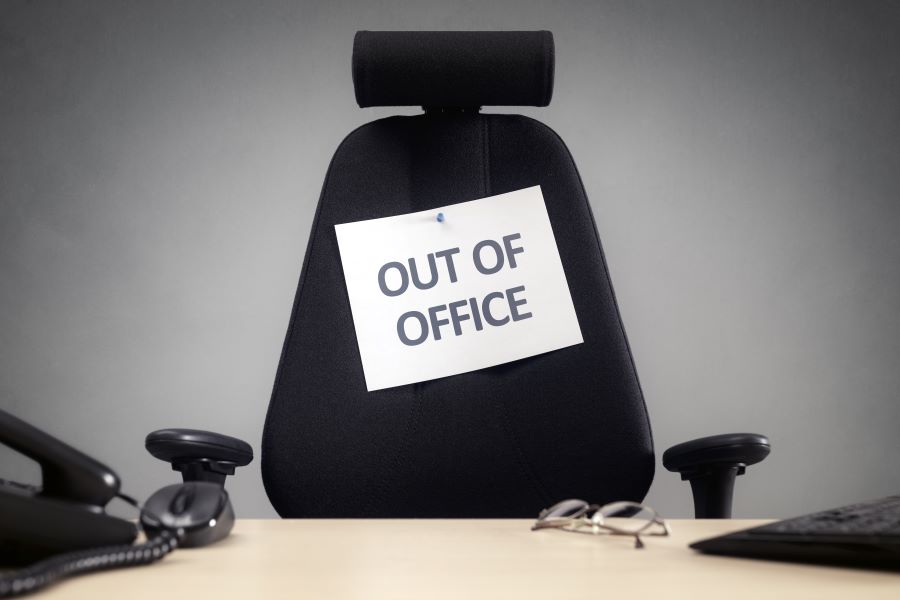
An Unspoken Assumption, For Me, Renders Everything Else Dubious At Best
An Unspoken Assumption, For Me, Renders Everything Else Dubious At Best
Published by the Daily Mail, the paper that hired Katie Hopkins, we have an article by Dr Eliza Filby. I am not going to question Dr Filby’s integrity nor spend any time questioning her motives for writing such a biased, short sighted, misconceived piece other than to say it smells very much like she owns an inner city sandwich bar.
The article is headlined “Not going back to the office will be ruinous for Britain but it could be even worse for YOU”. Capitals are kindly included because the words themselves perhaps don’t adequately convey the sense of panicked capitalism and we need BIG LETTERS to properly understand quite how “ruinous” this is all turning out to be. Although Dr Filby starts off by describing quite how well we coped in the 70s and describes the reduced time in the workplace being made up for by people “working more efficiently and at home”, she then goes on to extol the evils of that efficient work at home. Let’s have a look at her main points.
There is a conflation that runs through the article and we need to be clear: dealing with Covid-19, lockdown, working from home on an emergency basis and furlough have very little indeed to do with flexible and routine remote working.
So, the one point we can agree on is that the number of employees working from home as a result of Covid-19 is staggering, as is the number of people on furlough. Yes, it is all staggering. But…furloughed workers aren’t included in the working from home figures because, guess what, they’re not working. So let’s put that to one side.
The “collective groan” was more probably because of Johnson’s impression of statesmanship during this whole period, from missed Cobra meetings early in 2020 to shambolic mutterings consistently along the lines of “Don’t do XYZ unless you really have to do ZYX in which case do XYZ”. With Cummings’ birthday eye test and the withdrawal of remote voting for the Commons, this government has done more to engender deep cynicism and destroy what rags of trust we had left than I have ever seen. This is a kamikaze Cabinet yet somehow they survive.
Anyway, back to Eliza. She points at the huge companies who are already seeing the benefits of employees working from home which include increased productivity and savings around office space. I’m not seeing “ruinous” yet, either for the economy or for YOU. Let’s reiterate: we are not talking about enforced isolation whilst working at home during lockdown. Dr Eliza is seeking to damn working from home now and in the future when we have returned to something more familiar, our normality. A lot of the comments in response to her piece talk about mental health during lockdown and I don’t think anyone sensible would seek to minimise the impact here, but it is not what Dr Eliza addresses.
Unless she has a property portfolio that is going to suffer with tenants seeking to exercise their break clauses and leave units empty, her comments here largely reflect the benefit of reduced rents for businesses and reduced commute times for workers. So yes, unless you own commercial properties or sandwich shops, I’m yet to see “ruinous”.
So let’s get on to the real crux of her point here, that workers are inept at handling their own lives and cannot be left to define working hours and parameters for themselves. While anyone who suddenly finds themselves working from home, possibly never having done it before, during lockdown is likely to be undergoing a dramatic change – a pandemic, lockdown itself, isolation from friends, family and colleagues – it is of course the case that an adjustment to all of this is going to have an effect.
Just in case I haven’t said it before…. This does not reflect flexible or remote working practices under normal circumstances. You know, when there isn’t a global panic about a new virus. But, just as Dr Eliza does, let us put this backdrop to one side. Her comments infantalise YOU. They render YOU incapable of drawing distinctions between your working and home lives. YOU are incapable of deciding whether or not to turn off your computer, avoid a phone call, eat dinner. YOU are a robot that is in need of micromanagement, aren’t YOU?
My view is that suddenly imposed working from home most certainly will require adjustment but one that YOU can handle. If you want to, should you not have the choice to continue this working pattern of – to list Dr Eliza’s own benefits – reduced commuting, increased productivity, spending more time as you wish ?
Quite what any of this has to do with freezing eggs and breast milk couriers is beyond me, other than being a gimmicky and exploitative reference. In fact, the very thing that Dr Eliza rails against, flexible working, is the one thing that can overcome the issue of women pursuing meaningful careers around children. So, Eliza, care to explain please ? These schemes are not about flexible working, quite the converse.
So, back to “isolation” and the idea that businesses are looking to swap home for the office and the office for social/home activities. We will not be isolated outside of lockdown, most businesses who support flexible and remote working will have a hub for client and staff meetings, hot or permanent desks for those who want them. Isolation right now is about a virus and not about turning people into pasty, overworked little grubs in cells at home. This is about choice, a choice that YOU are much more likely to have going forward. In my view, this is a 24 carat gold lining.
Some of us have been working this way for years, reaping the benefits of attending our children’s nativity plays whilst providing high quality services to significant clients. Some of us might just want to work this way and prefer dogs to children, or just want to work at 5am in jimjams because that’s our productive time. Guess what, if your clients get what they need when they need it, they don’t care where YOU are. Novel, I know.
Dr Eliza ends with rubbishing Imperial College London’s research and recommendations, making the grand statement, “And so before we all rip off our lanyards in liberation, before we decide the great WFH debate is already settled, we must beware that we could end up working harder, longer, more often — and feeling ever more isolated.” So YOU are not to decide on your own working model, as an adult with options, YOU are to return to the office, travel on trains, buy those goddamned sandwiches, enable your bosses to pay their landlords and forget your work-life balance. Got it?
With a parting statement, “In such a scenario we risk losing the very things that make us human” Dr Eliza can really only invite a snort of derision. She is comparing apples and oranges. A fully realised adult human being is capable of making choices, authorship of one’s own life is the most fulfilling, beautiful gift we can give ourselves and she actually claims that having that choice will put at risk “the very things that make us human”. What “things”? Being chained to a desk, spending hard earned cash on commuting, inhaling sandwiches at Prets and spending years fulfilling little more than the boss’s holidays in Mauritius ?
The very foundation of Dr Eliza’s piece is wrong: that the traditional working set up worked for employees. That it didn’t destroy the work-life balance or have seriously detrimental effects on mental health. This unspoken assumption, for me, renders everything else dubious at best.
The views expressed in this article are those of the submitter and not those of Today’s Wills and Probate.










